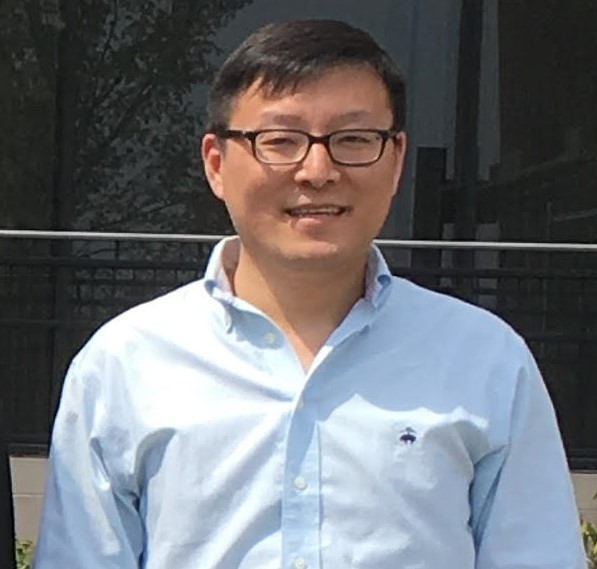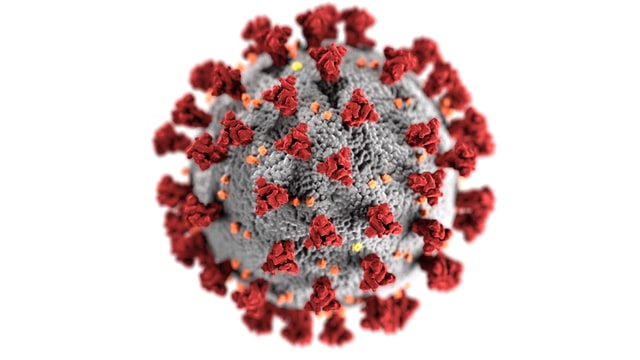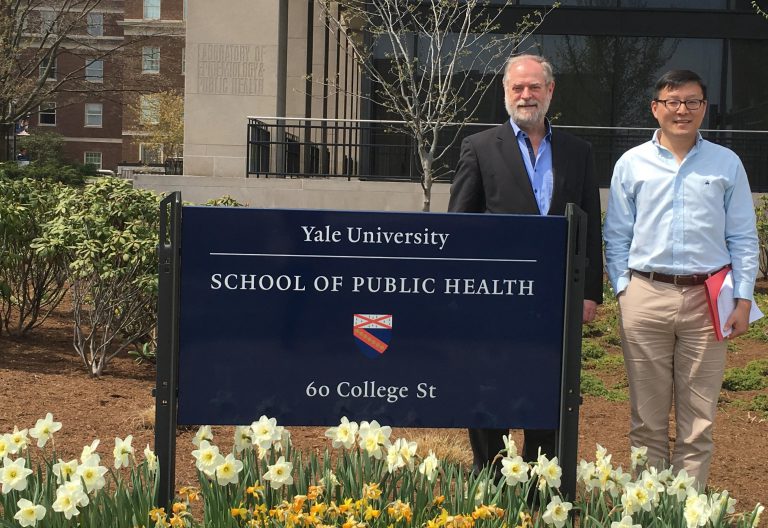The world is shaken by the #coronavirus crisis. Top health economist Xi Chen, who has done new and original research on the virus, explains his conclusions on the management of the crisis based on the Chinese experiences and the challenges for research.
- In the past decade, many nations in the world de-invested in their disease control and prevention.
- Now it is better to overreact than to underreact.
- The Chinese experience shows that only after ten days the harsh measures already altered the infection growth trajectory.
- The UK’s strategy of obtaining “herd immunity” is very risky given the little knowledge about this new virus.
- Social distancing can saliently reduce the risk of contracting virus via avoiding inhaling droplets or touching through handshake.
- This very likely to be a long pandemic.
GLO Fellow Xi Chen is a Professor of Global Health Policy and Economics at Yale University, the GLO Cluster Lead of “Environment and Human Capital in Developing Countries”, and the President of the China Health Policy and Management Society (CHPAMS).

Xi Chen 
Interview
GLO: Your research is on health issues and their societal and economic consequences, how did you come to this research focus?
Xi Chen: The pursuit of health and longevity for mankind has no limits. As health spending has accounted for the largest share of GDP across many countries, it becomes very important to assess if our spending is cost-effective and affordable. A health and labor economist by training, I’m very passionate about using research findings to inform health resources allocation and improve actions at the individual, community, and societal levels.
GLO: You are currently the President of the China Health Policy and Management Society. What is the purpose of this society and what is your role as its head?
Xi Chen: China Health Policy and Management Society (CHPAMS) is a global professional organization with over 2,200 members around the world. Our mission is to improve health and health equity and contribute to the advancement of health research, practice, and education of areas including but not limited to, health policy and management, health economics, epidemiology, and global health. As president of CHPAMS, my Board of Directors and I have been striving to accomplish our mission by fostering and promoting scholarly exchanges among its members and with Chinese public health community, and by building health research capacities of China institutions.
GLO: As a frequent observer and researcher of the health conditions in China: How could the coronavirus outbreak happen and what is to learn?
Xi Chen: The heavily invested infectious disease surveillance system did not sound alarm for this novel virus. Part of the reasons include that the system did not allow medical workers to report new diseases, and that most medical professionals were not well trained to appropriately report cases. This important issue is not unique to China. In the past decade, many nations in the world de-invested in their disease control and prevention. In the meantime, they did not invest appropriately in building a primary care system to initial diagnosis of patients before they all flooded to overstretched hospitals. All these investments should be made ahead before the next pandemic.
GLO: Patient but careful responses or early harsh measures: Is the strict reaction of the Chinese government the right one as a model for the world?
Xi Chen: For infectious diseases, especially COVID-19 that is new to the world, it is better to overreacting than underreacting. The exponential growth trajectory of virus determines that the time it takes to double the number of cases keeps shrinking. Governments, social entities and individuals should intervene early and strong enough to flatten the curve for sustained medical resources to treat severely ill patients, rather than squandering the window of opportunity until reaching healthcare capacity. Overburdened health infrastructure leads to more infections and high fatality rate, like we are observing in Italy. China set a good example after it decided to lock down Hubei province with a number of stringent public health measures. Our latest study forthcoming as a GLO Discussion Paper shows that only after ten days the harsh measures already altered the infection growth trajectory.
GLO: Is re-infection with the virus possible? If the immune system is strengthened during an infection, harsh lock downs of the countries do not remove the need to adjust to the new threat at some time.
Xi Chen: Normally, people once contracted a virus will obtain at least temporary immunity for at least weeks or months. However, this time this is a novel coronavirus, we still know little about this. Some news and published clinical evidence already show cases people (in China’s Guangdong province and other areas) re-infected after being discharged from hospitals. Therefore, I thought the UK’s strategy of obtaining “herd immunity” is very risky given our little knowledge about this new virus. The “herd immunity” needs a threshold of at least 60% of population being infected, many of them are older adults, especially with multiple chronic conditions. A massive number of them will die. From a public policy perspective, we should try the best to protect these vulnerable groups, not leaving them behind as they were during pandemic in history. It is good to see that today the British government seems to change the strategy by offering protection to those above 70 and those living in nursing homes. In America, I was among the 15 Yale and Harvard colleagues to write an open letter to Vice President Mike Pence and the US government for an equitable response to this pandemic, and not unfairly operate at the cost of those most vulnerable.
GLO: What are the most effective single measures so far we understand this today to tame the speed of transitions?
Xi Chen: In my view it is social distancing, such as cancelling large social gathering, allowing flexible work schedule and working from home, leave more person-to-person space in public facilities. Social distancing can saliently reduce the risk of contracting virus via avoiding inhaling droplets or touching through handshake.
GLO: For the world-wide level: Can the disease be contained soon or do we have to accept a longer pandemic?
Xi Chen: I’m afraid it is very likely to be a long pandemic. Part of the reason is the lack of global coordination that delayed the joined efforts to contain the virus or avoid long scale community transmissions. While different countries are at different stages of this pandemic, we already see that most countries already abandoned the strategy of containment. Instead, the mitigating strategy has been widely adopted. Given the stronger infectiousness but weaker virulence of this novel coronavirus compared to other types of coronavirus like SARS and MERS, it is more likely we will see the recurring of this virus outbreak. In other words, we will have to adapt to the world where this virus will coexist with us. My hope is that this outbreak may not last too long to further disrupt the global supply chain.
GLO: Given the large economic and social impacts we observe, where are the larger challenges for research, on the medical or the psychological side?
Xi Chen: On the medical side, it is challenging so far to find the origin of the virus, and intermediate host. We are questing the answer to these questions in order to stop its transmissions to human society and to know the roots of the pandemic. Other challenges are more relevant to our economists. For example, what are the real social costs of this pandemic. We know that patients with other diseases were not able to be treated due to the crowding-out of medical resources. Many residents under lockdown suffer from mental illnesses which can be very costly to treat after the crisis. Finally, we know little about the potential benefits of stringent public health measures, which depends on our understanding of the counterfactual for this new virus outbreak.
*************
With Xi Chen spoke Klaus F. Zimmermann, GLO President.
Yun Qiu, Xi Chen & Wei Shi (2020): Impacts of Social and Economic Factors on the Transmission of Coronavirus Disease 2019 (COVID-19) in China, GLO Discussion Paper, No. 494.

Xi Chen & Klaus F. Zimmermann (left) at Yale University during a previous visit.
Ends;

